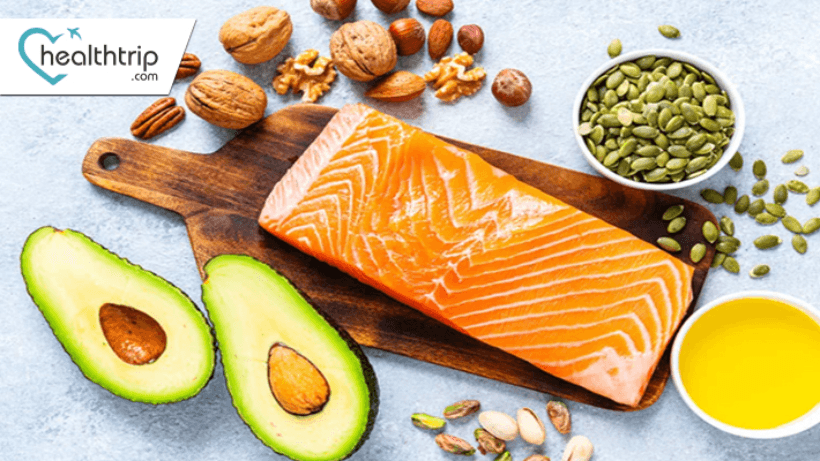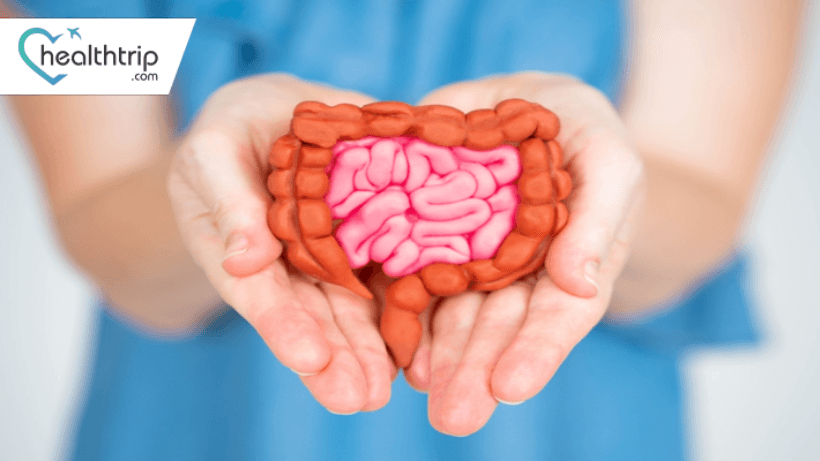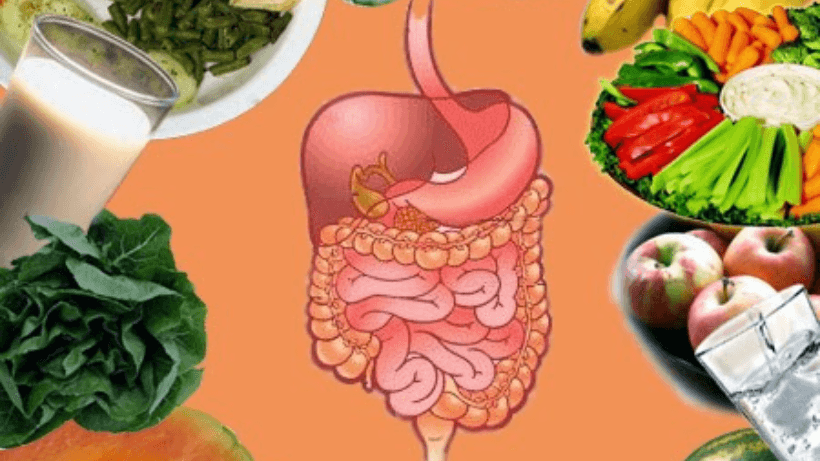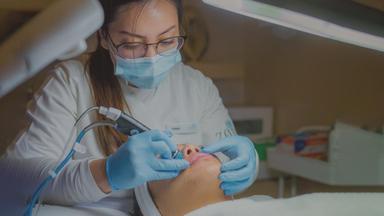
The Role of Probiotics in Gut Health and Immunity
30 Oct, 2023
 Healthtrip Team
Healthtrip TeamProbiotics have gained significant attention in recent years, not just as a health trend but as a vital component of our overall well-being. These beneficial microorganisms, primarily bacteria and yeast, play a crucial role in maintaining gut health and bolstering our immune system. This article delves into the intricate relationship between probiotics, gut health, and immunity, shedding light on why these tiny organisms are essential for our body.
Most popular procedures in India
What are Probiotics?
Probiotics are live microorganisms that, when consumed in adequate amounts, confer health benefits to the host, primarily by improving or restoring the gut flora. They are often referred to as "good" or "friendly" bacteria because they help keep our gut healthy. Probiotics can be found in fermented foods like yogurt, sauerkraut, miso, and kimchi, as well as in dietary supplements.
Wellness Treatments
Give yourself the time to relax
Lowest Prices Guaranteed!

Lowest Prices Guaranteed!
Probiotics and Gut Health: A Closer Look
The human gut is a complex ecosystem, teeming with a diverse array of microorganisms. Among these, probiotics have emerged as the superheroes, championing the cause of gut health and overall well-being. Let's delve deeper into the pivotal roles they play:
1. Balance of Gut Flora:
The gut flora, also known as the microbiota, is a delicate balance of various microorganisms. This balance is crucial for optimal health. Here's how probiotics help:
- Combatting Harmful Bacteria: Probiotics actively compete with harmful bacteria for nutrients and space, effectively reducing their numbers. They also produce substances that are toxic to these harmful bacteria, further suppressing their growth.
- Promoting Beneficial Bacteria: By creating a conducive environment, probiotics encourage the growth of other beneficial bacteria, enhancing the gut's overall health.
- Preventing Imbalances: Factors like diet, stress, and medications, especially antibiotics, can disrupt the gut's microbial balance. Probiotics help restore this balance, preventing issues like antibiotic-associated diarrhea.
2. Digestive Health:
The digestive system breaks down food, absorbs nutrients, and expels waste. Probiotics play several roles in this intricate process:
- Aiding Digestion: Some fibers and complex carbohydrates are challenging for our bodies to digest. Probiotics break down these substances, making them easier to process.
- Producing Vital Compounds: Probiotics produce short-chain fatty acids (SCFAs) like acetate, propionate, and butyrate. These SCFAs nourish the gut lining, ensuring its integrity and function.
3. Prevention of Diarrhea:
Diarrhea can be distressing and, in severe cases, life-threatening. Probiotics offer a natural solution:
- Antibiotic-Associated Diarrhea: Antibiotics can kill beneficial bacteria, leading to diarrhea. Probiotics help restore the gut's microbial balance, reducing the risk of diarrhea.
- Infectious Diarrhea: Certain probiotic strains can reduce the severity and duration of infectious diarrhea, especially in children.
4. Alleviation of IBS Symptoms:
IBS is a chronic condition affecting the large intestine. Symptoms include cramping, abdominal pain, bloating, gas, and diarrhea or constipation. Probiotics offer relief:
- Modulating Gut Flora: Probiotics can alter the gut flora composition, which is often imbalanced in IBS patients.
- Reducing Inflammation: Some probiotics reduce gut inflammation, a common feature in IBS patients.
- Relieving Symptoms: Regular consumption of specific probiotic strains has shown to alleviate common IBS symptoms, enhancing the quality of life for many sufferers.
Probiotics and Immunity: A Synergistic Relationship
The immune system is our body's defense mechanism against foreign invaders, ensuring our survival and well-being. Probiotics, often termed as "beneficial bacteria," play a pivotal role in enhancing and supporting this defense system. Let's delve into the multifaceted ways in which probiotics bolster our immunity:
1. Barrier Against Pathogens:
The gut, being the largest mucosal surface in the body, is a primary entry point for many pathogens. Probiotics play a protective role:
- Production of Antimicrobial Substances: Probiotics produce bacteriocins and other antimicrobial compounds that inhibit the growth and colonization of harmful bacteria in the gut.
- Enhancing Gut Wall Integrity: Probiotics promote the production of tight junction proteins, ensuring that the gut lining remains intact and impermeable to pathogens.
2. Stimulation of Immune Cells:
The immune system comprises various cells that work in tandem to fend off infections. Probiotics act as modulators:
- Activation of Macrophages: These are the "big eaters" of the immune system, engulfing and destroying pathogens. Probiotics enhance their phagocytic activity.
- Stimulating T-lymphocytes: Probiotics can modulate the activity of T-cells, ensuring a balanced immune response.
- Boosting Natural Killer Cells: These cells play a crucial role in eliminating virus-infected and tumor cells. Probiotics enhance their cytotoxic activity.
3. Production of Antibodies:
Antibodies are proteins that recognize and neutralize foreign invaders. Probiotics play a role in their production:
- Enhancing IgA Production: Immunoglobulin A (IgA) is the primary antibody present in mucosal surfaces like the gut. Probiotics stimulate its production, enhancing mucosal immunity and preventing pathogen colonization.
4. Regulation of Inflammation:
While inflammation is a natural immune response, chronic inflammation can be detrimental, leading to various diseases. Probiotics act as regulators:
- Modulating Cytokine Production: Probiotics can influence the production of cytokines, proteins that regulate inflammation. They ensure a balanced production, preventing excessive inflammation.
- Promoting Anti-inflammatory Responses: Certain probiotic strains induce the production of anti-inflammatory compounds, ensuring that the immune response doesn't go overboard.
In conclusion, the relationship between probiotics and immunity is intricate and symbiotic. By maintaining a healthy gut flora through the consumption of probiotics, we not only ensure optimal digestive health but also fortify our body's natural defenses. In an era where immunity is of paramount importance, understanding and harnessing the power of probiotics can pave the way for a healthier future.
Related Blogs

Say Goodbye to IBS: Top IBS Hospitals in India for Effective Treatment
Healthtrip helps you find the top IBS hospitals in India

IBS Treatment in India: Finding Relief from IBS Symptoms
Get the best IBS treatment in India with Healthtrip, find

Healthy Habits for Better Digestion and Gut Health
Digestion is a complex process that transforms the food we

RAKxa's Approach to Gut Health Treatment
1. Gut Health TreatmentYour gut is a complex ecosystem that

Understanding Digestive Health: A Comprehensive Guide
IntroductionOur body's health and well-being are profoundly influenced by the

Naturopathy and Sleep: Promoting Restful Nights Naturally
Sleep plays a vital role in our overall well-being. It










